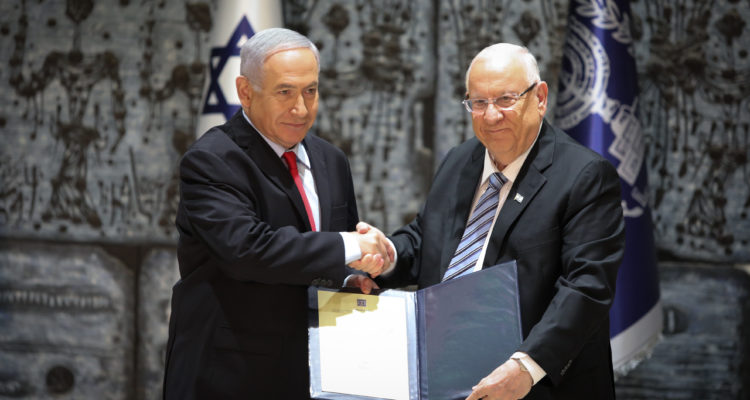Netanyahu is expected to form a governing majority of 65 Knesset members.
By World Israel News Staff
Prime Minister Benjamin Netanyahu will ask President Reuven Rivlin for more time to form a new governing majority in the Israeli parliament, according to a statement issued by his Likud party.
In the April 9 Knesset election, Blue and White finished in a tie with the Likud, each winning 35 seats in the 120-seat parliament.
Under the Israeli system, the president – a ceremonial position – chooses who should get the first crack at forming a government.
Despite the tie between the two largest factions, President Rivlin chose Mr. Netanyahu because the incumbent prime minister received the support of a majority of members of Knesset (MKs) in consultations which took place at the Presidential Residence in Jerusalem.
Prime Minister Netanyahu is expected to form a governing majority of 65 MKs.
Under Israeli law, the prime minister-designate is granted a 28-day period to form a government coalition, with the right to request a two-week extension.
Mr. Netanyahu is citing a busy period of time that included Passover, Holocaust Remembrance Day, Memorial Day for Israel’s Fallen, and Independence Day as reasons for his inability to consistently maintain contacts with other parties, in addition to the recent round of massive rocket attacks from the Gaza Strip.
The process of forming a new government includes reaching an agreement on policy guidelines with each of the partners. This coalition would include politically right-wing and religious parties.
Differences in policy among certain parties must be resolved, in particular between the two Haredi Orthodox factions – United Torah Judaism (UTJ) and Shas – and Yisrael Beiteinu, which objects to what it views as religious coercion.
Last week, UTJ called off a meeting with the Likud on forming a coalition to protest the granting of work permits on the Jewish Sabbath for the Eurovision Song Contest, to take place in Tel Aviv this week.
Also at stake in the current talks is the distribution of ministerial positions in the Cabinet and prestigious posts in the Knesset.





